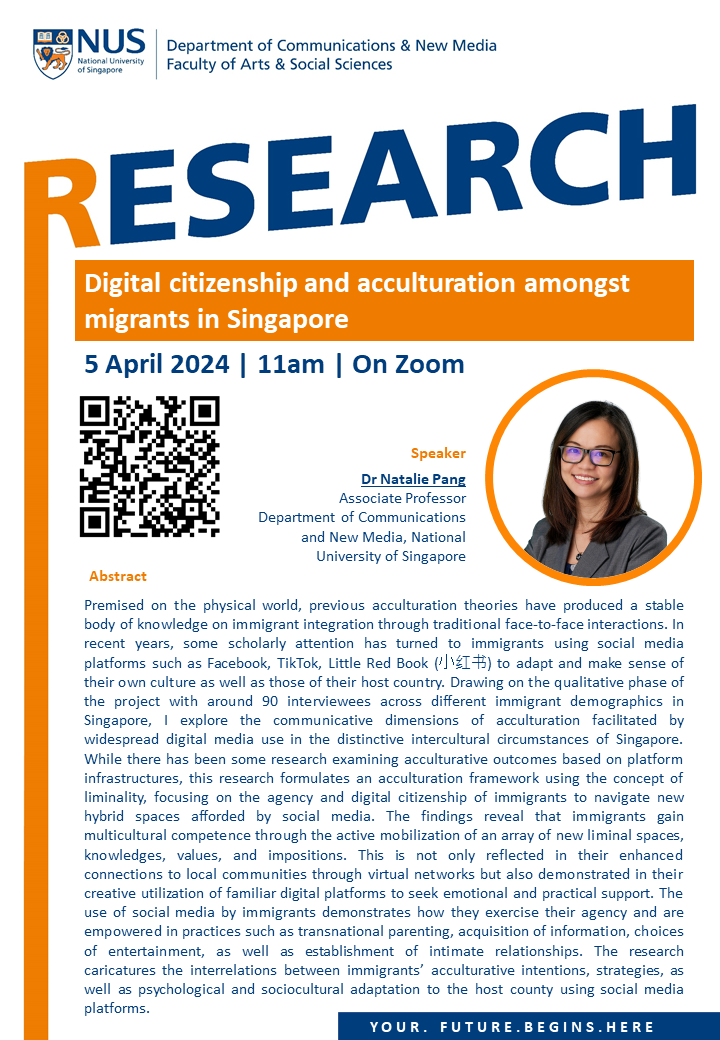Digital citizenship and acculturation amongst migrants in Singapore

ZOOM Registration
Participants will receive a Zoom link via an automated email from Zoom after registration.
Speaker

Dr. Natlie Pang, CNM, NUS
Dr Natalie Pang is an Associate Professor at the Department of Communications and New Media (CNM), as well as Principal Investigator at the Centre for Trusted Internet and Community, both at the National University of Singapore (NUS). Her research and teaching focuses on digital citizenship/well-being and digital humanities, and her upcoming Research Handbook on Social Media and Society brings together scholarly responses to key challenges posed by social media ecologies. She also works on translation research with government and intergovernmental agencies, tech companies and non-profits, and serves as an expert member of the UNESCO Inclusive Policy Lab, and expert in the Pacific Forum Women Experts Directory.
Abstract
Premised on the physical world, previous acculturation theories have produced a stable body of knowledge on immigrant integration through traditional face-to-face interactions. In recent years, some scholarly attention has turned to immigrants using social media platforms such as Facebook, TikTok, Little Red Book (小红书) to adapt and make sense of their own culture as well as those of their host country. Drawing on the qualitative phase of the project with around 90 interviewees across different immigrant demographics in Singapore, I explore the communicative dimensions of acculturation facilitated by widespread digital media use in the distinctive intercultural circumstances of Singapore. While there has been some research examining acculturative outcomes based on platform infrastructures, this research formulates an acculturation framework using the concept of liminality, focusing on the agency and digital citizenship of immigrants to navigate new hybrid spaces afforded by social media. The findings reveal that immigrants gain multicultural competence through the active mobilization of an array of new liminal spaces, knowledges, values, and impositions. This is not only reflected in their enhanced connections to local communities through virtual networks but also demonstrated in their creative utilization of familiar digital platforms to seek emotional and practical support. The use of social media by immigrants demonstrates how they exercise their agency and are empowered in practices such as transnational parenting, acquisition of information, choices of entertainment, as well as establishment of intimate relationships. The research caricatures the interrelations between immigrants’ acculturative intentions, strategies, as well as psychological and sociocultural adaptation to the host county using social media platforms.


